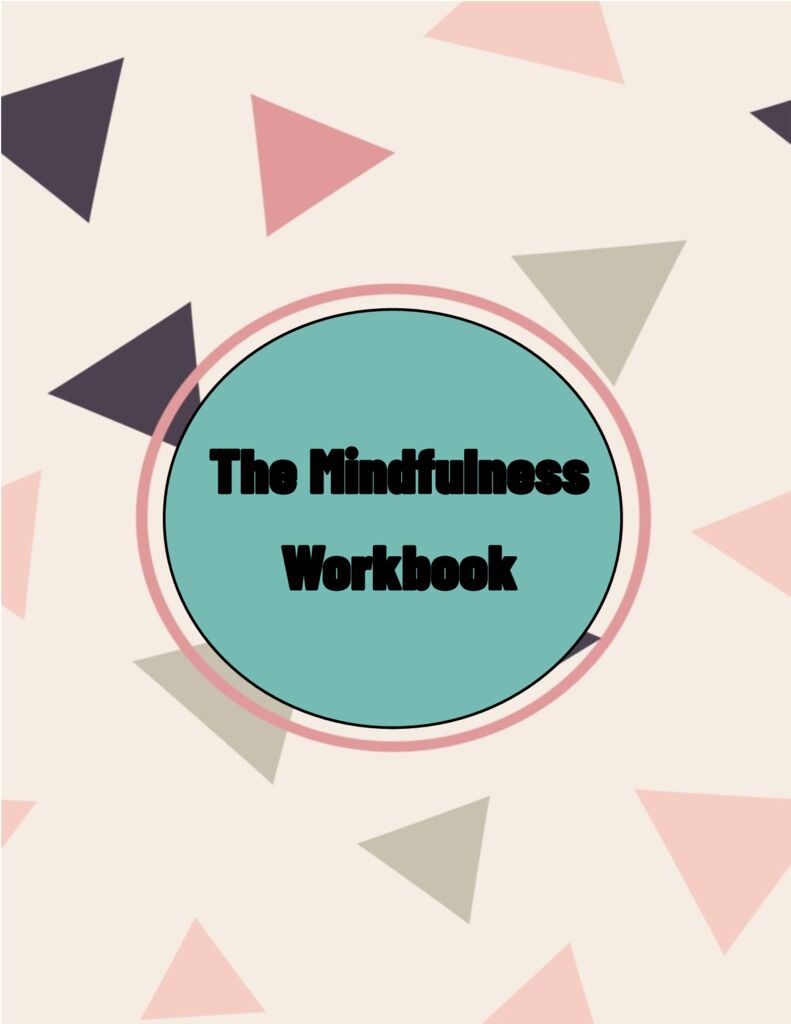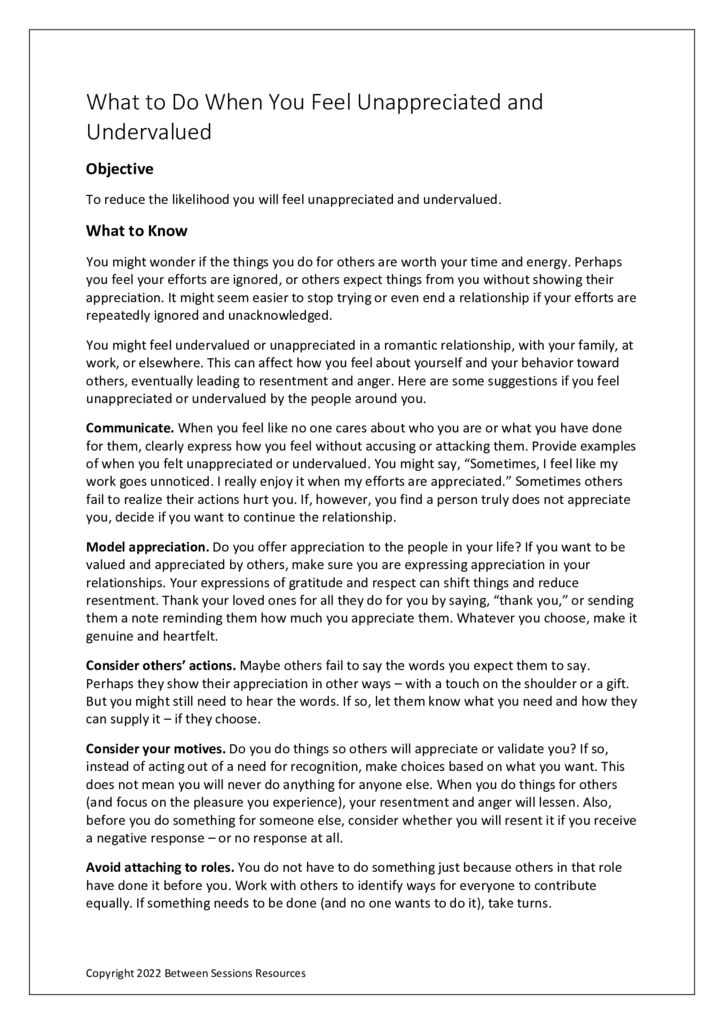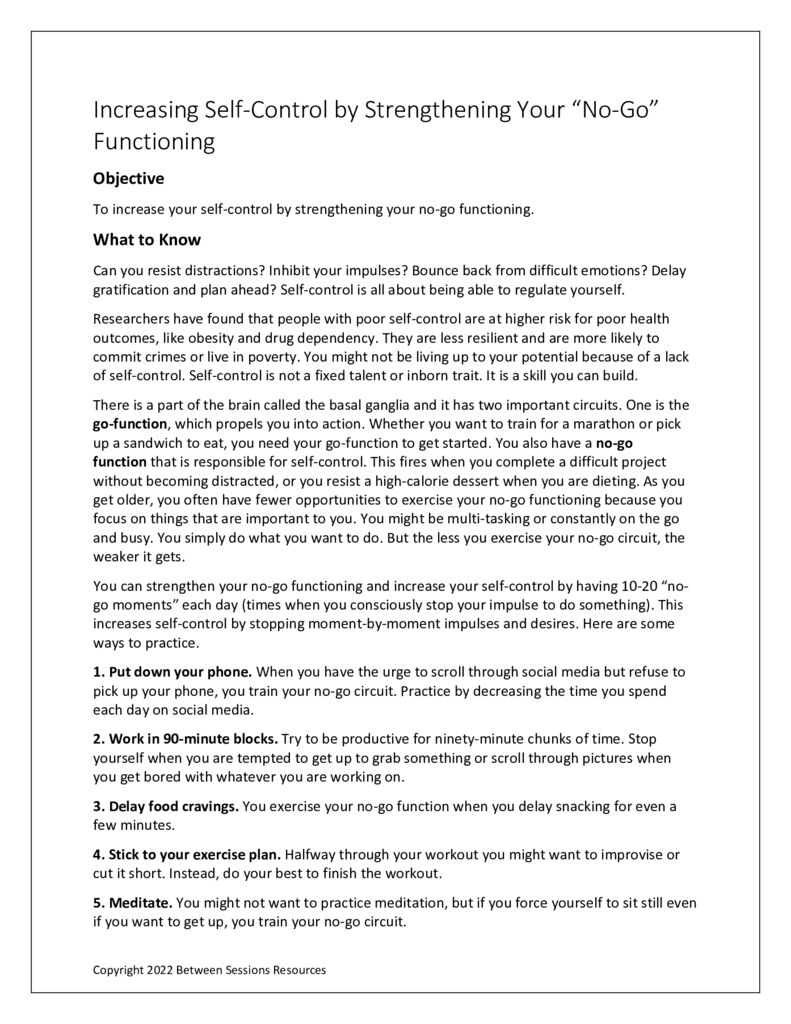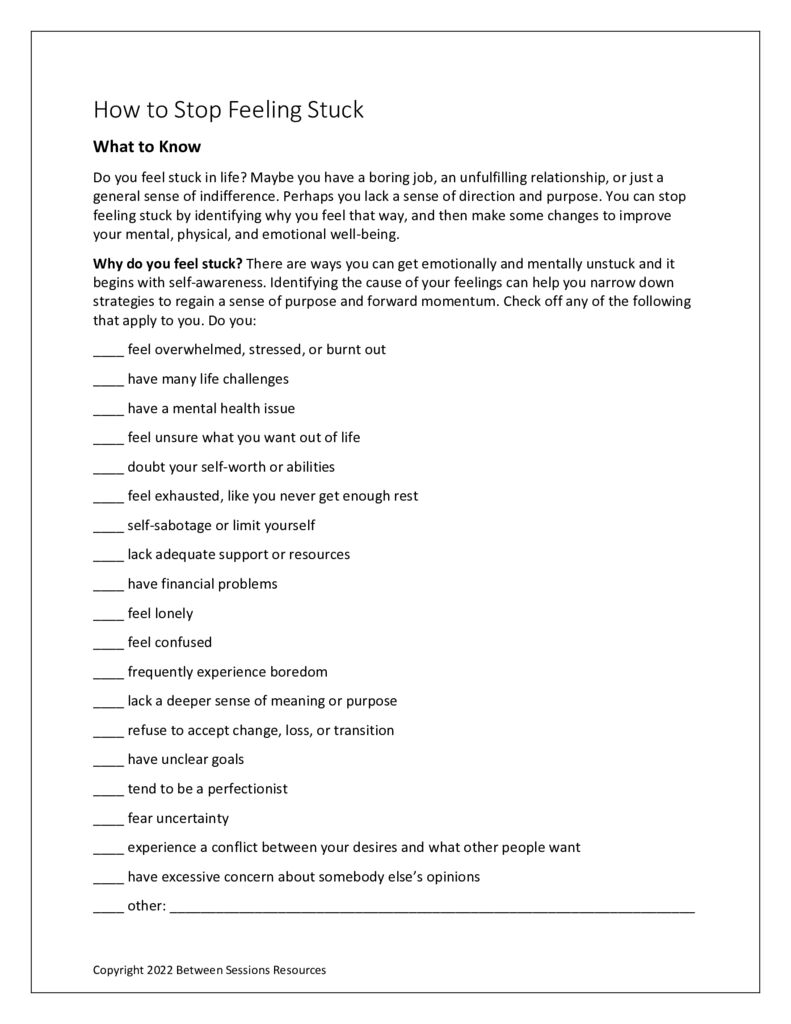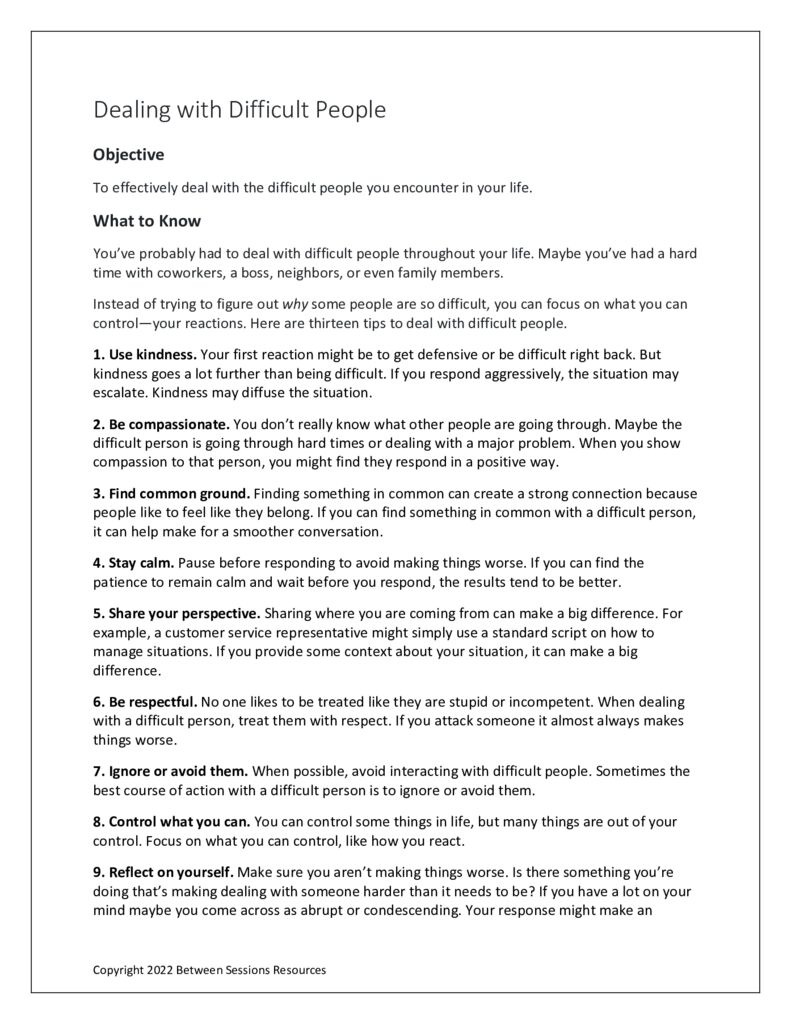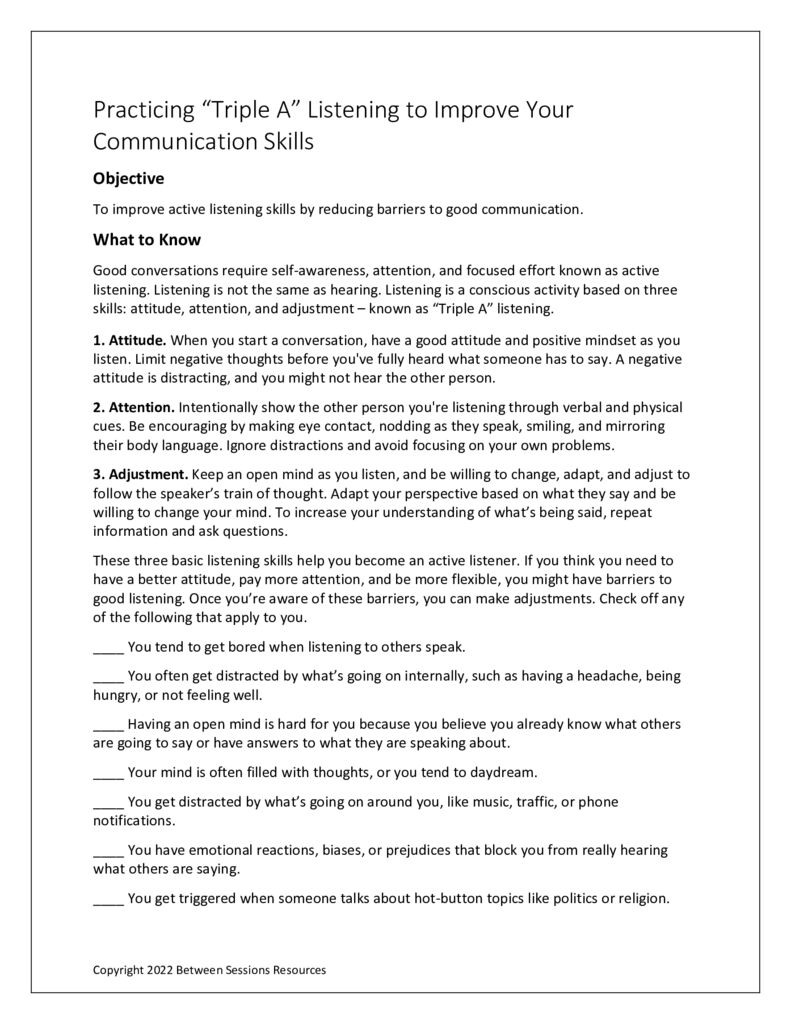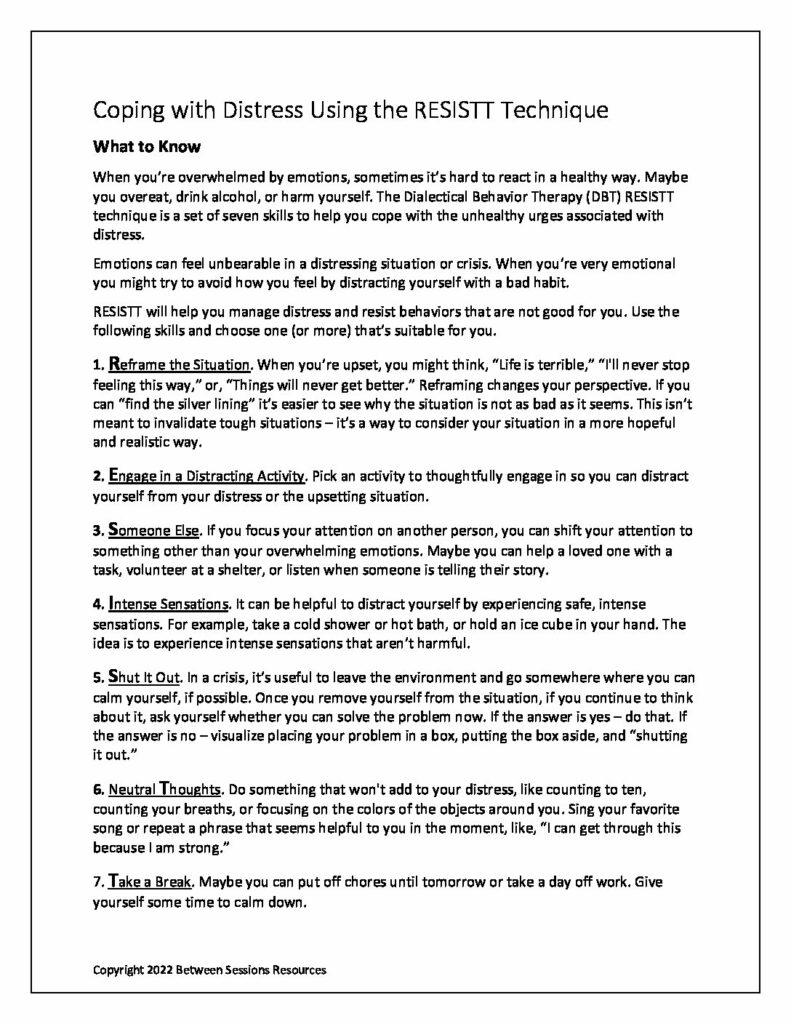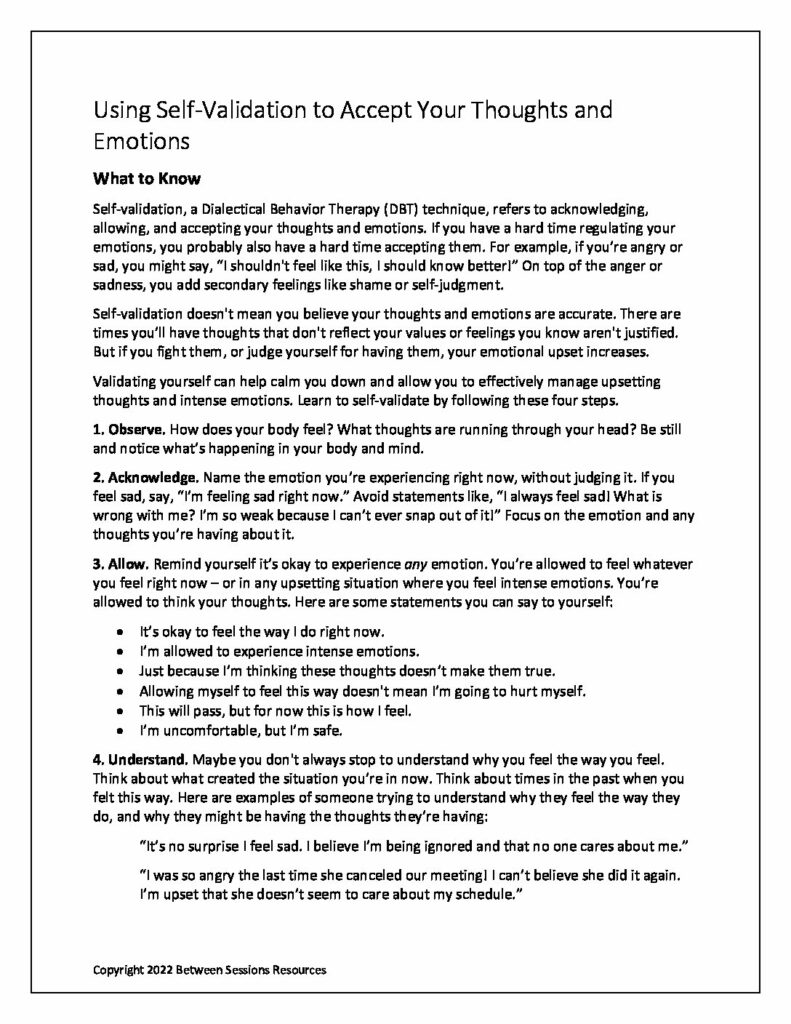This workbook contains 12 worksheets that teach important mindful practices including letting go, being positive, staying in the present, mindful breathing, having healthy boundaries, and more.
This worksheet is designed to help people who feel that others are not acknowledging their efforts to be helpful on an ongoing basis. It provides a dozen suggestions on what people can do to feel better about themselves and those around them. The worksheet is designed to help people think about why feeling appreciated is important to them and how they can get the appreciation they seek. (0522, social skills, relationships, marriage, parenting)
This worksheet asks people to imagine their “best self” as a way to increase their self-esteem. The questions guide readers to think about their positive qualities and exactly what they do when they felt really good about themselves. (0522, self-esteem, depression, positive psychology)
This worksheet has 9 strategies to help people develop self-control. A chart is also provided to help people keep track of their “no-go” efforts. (0422, impulse control, ADHD, addiction, compulsive behavior eating disorders)
This Mindfulness worksheet asks people to examine their inner strengths as they relate to conversations, action, relationships, and so on. It asks them to think about how each strength was used and what they learned from “being mindful” of their strengths. (0322, mindfulness, character strengths, positive thoughts)
Many people have the feeling of being “stuck” in their lives. This worksheet gives people practical ways to make the changes they need to feel they are making progress toward their life goals and feel that their lives are valuable and fulfilling. (0322, depression, happiness, transition)
Dealing with difficult people can be a significant stress for many people, but this worksheet gives you practical techniques to help reduce this stress. The worksheet also includes a chart to help you evaluate the interactions you have with the difficult people in your life and determine what helps and what doesn’t. (0322, social skills, relationships, interpersonal skills, DBT)
This worksheet describes a “Triple-A Technique” listening technique that involves: Attitude, Attention, and Adjustment. It includes a brief assessment to help people see if they have problems in listening and lists some basic active listening skills. The worksheet includes a chart to help people practice this technique. (0322, communication, listening skills, ADHD, ASD, Asperger Syndrome)
The RESISTT Technique is a DBT technique to help people deal with overwhelming emotions. The acronym stands for: Reframe the Situation, Engage in a Distracting Activity, Someone Else, Intense Sensation, Shut it Out, Neutral Thoughts. The worksheet helps people understand how each technique can help them in regulating their emotions. (0122, DBT, Dialectical Behavior Therapy, emotional regulation)
This worksheet helps people understand the DBT concept of self-validation, acknowledging, allowing, and accepting your thoughts and emotions. The 4 steps of self-validation are: Observe, Acknowledge, Allow and Understand. A chart helps people practice these four important steps. (0122, DBT, self-acceptance)

